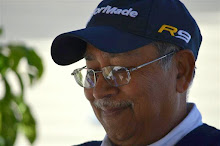Title: "The Lungchatri Ledger"
Prologue:
In a raddiwala shop on College Street, amidst yellowing textbooks and rusted detective novels, Ananta Mitra found something unusual—a leather-bound diary with faded ink, its edges scorched as though it had narrowly escaped a fire. The first page read:
"Diary of Lt. Archibald Oliver Smythe, Assistant Quartermaster, Fort William, Calcutta. Strictly private."
Little did Ananta know, this forgotten relic would unravel a story of trickery, trust, and tropical garments.
Excerpt from the diary – Entry dated 3rd April 1871
"Met Surajmal at dawn by the ghats. The smell of coal and cow dung was unbearable, but the man was punctual as always. He handed me the Coimbatore cotton samples — finer than silk, and the umbrella frames had arrived from Canton via the opium route. We laughed about Lungchatri’s new slogan: 'When it pours, wear the roar.' Bloody brilliant, if I may say so."
Chapter One: Ananta’s Discovery
Ananta, a retired engineer and amateur historian, squinted through his reading glasses at the diary. "Lungchatri?" he whispered. “Didn’t Dadu mention an umbrella that doubled as a lungi in his childhood tales?”
The more he read, the clearer the image became — a corrupt but clever British officer who manipulated the indigenous hundi system, and a Marwari businessman who straddled the thin line between legitimacy and smuggling.
Flashback: A Rainy Evening in 1871, Calcutta
Location: A dimly lit room above Surajmal's shop near Burrabazar
Surajmal: (fanning himself with a folded Lungchatri)
“Archie bhai, you're late. The Chinese shipment reached two days ago. We are losing cotton to rats and time to monsoons.”
Lt. Smythe: (pouring himself a glass of brandy)
“Apologies, my dear Suraj. Had to meet the Company auditor. He’s getting nosy. Keeps asking how a lowly assistant quartermaster affords a phaeton carriage and a brass telescope.”
Surajmal: (laughs)
“Tell him Lungchatri is divine grace. Rain or shine, the poor man’s pride! Now tell me — did you tweak the hundi?”
Lt. Smythe:
“Indeed. The hundi from Bikaner says ‘one thousand’ in ink, but a delicate charcoal stroke turned it into ‘ten thousand’. Your man at the Agra branch owes me a dinner.”
Surajmal:
“And we owe the British Empire a thank-you. Their paperwork is slower than bullock carts. Now, let’s talk design — the new lungi must have hidden pockets. Opium is best carried close to the skin.”
Lt. Smythe:
“And the umbrella?”
Surajmal:
“Double-layered, waterproof, and lined with tea samples from Assam. Call it Chaa-Chhatri. A cousin brand. Imagine the scandal if Viceroy’s wife opens one!”
They both roar in laughter, a sound muffled by the thunder outside.
Back to Ananta, Present Day
Ananta shut the diary and looked out at the monsoon clouds gathering over Kolkata.
The mystery of Lungchatri — half umbrella, half lungi, all legend — was real. And he, Ananta Mitra, had stumbled upon its forgotten footprint. But a burning question remained: Which of the old palatial bungalows in North Calcutta once housed this strange empire?
And more urgently — who else knew about the Lungchatri ledger?


7 comments:
What a topic...!!! A real time travel...
Very nice! Speaks volumes about your research into history!
Thanks Subhedar for liking the story !
Thanks Sagde, yes i did some background check about hawala route of money travel from Rajasthan to Calcutta.
Such a astonishing connection with
ancient history. How money travells from
Rajasthan to Calcutta. Wonderful sir
Vinod kumar shukla
Thanks dear Shukla for liking the story from historical perspective!
I am feeling delightful proud to
have word Calcutta again.
Yes I admire history.
Regards
Post a Comment